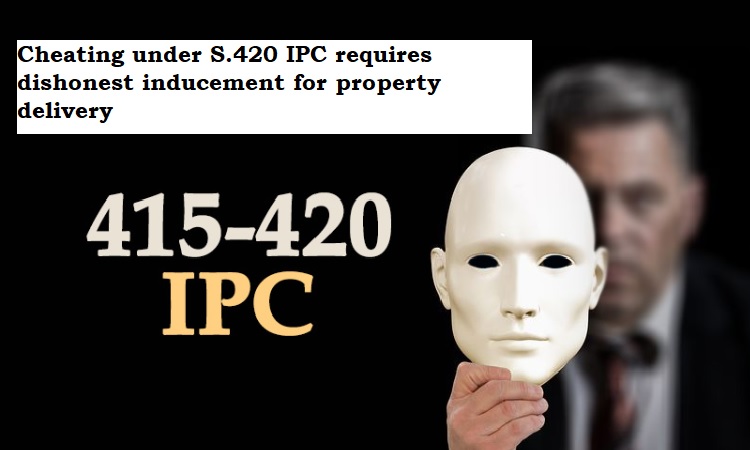


The Supreme Court, in a significant ruling on January 22, underscored the nuanced elements required to establish an offense of cheating under Section 420 of the Indian Penal Code (IPC). The apex court's decision, delivered by the Bench comprising Justices Surya Kant and KV Viswanathan, delved into the crucial aspect of whether a deceitful act leading to cheating was conjoined with an inducement resulting in the transfer of property.
Contrary to the concurrent findings of the High Court and the Trial Court, the Supreme Court emphasized that merely committing a deceitful act was insufficient to constitute an offense of cheating under Section 420 IPC. The Court articulated that the deceitful act must be accompanied by a dishonest inducement compelling the aggrieved party to part with their property, ultimately causing loss or damage.
The Court clarified that a statement of fact is considered 'deceitful' when it is knowingly or recklessly false, made with the intent that it be acted upon by another person, resulting in damage or loss. Therefore, the essence of 'cheating' involves a preceding deceitful act that dishonestly induces the victim to deliver property or a valuable security, prompting an action they would not have taken without the inducement.
In a specific case before the Court, a husband had filed a criminal case against his wife and relatives, alleging forgery and cheating. The wife had used her husband's signature to apply for a passport for their minor child to travel abroad. The Court, however, quashed the criminal case, citing a lack of dishonest intention on the part of the wife and the absence of any loss or damage suffered by the husband, as the wife acted on the husband's instructions.
The Court articulated that, to trigger Section 420 IPC, the prosecution must establish not only the act of cheating but also prove that the accused dishonestly induced the victim to deliver property. The offense comprises three components: deception, fraudulent or dishonest inducement to deliver property, and the accused's dishonest intention at the time of making the inducement.
Analyzing the specific case, the Court noted that the act of the wife, forging her husband's signature to obtain a passport for their minor child, did not amount to cheating under Section 420 IPC. The Court emphasized the crucial requirement of a deceitful act resulting in loss or damage, which was absent in this scenario.
Furthermore, the Court clarified that the offense of forgery necessitates the preparation of a false document with the dishonest intention of causing damage or injury. As the primary ingredient of dishonest intent could not be established against the appellants (wife and relatives), the Court concluded that the offense of forgery also did not apply.
Additionally, the Court dismissed charges under Section 12(b) of the Passports Act, 1967, pertaining to willfully furnishing false information to obtain a passport. The State FSL report indicated inconclusive evidence of forgery in the passport application, further supporting the Court's decision to discharge the appellants.
In sum, the Supreme Court's ruling clarified the intricate elements required to establish a cheating offense under Section 420 IPC, emphasizing the need for dishonest inducement leading to property loss. The decision not only addressed the specific case before it but also provided legal insights into the broader understanding of cheating and forgery offenses under Indian law.
TAGS: Supreme Court Section 420 IPC cheating offense deceitful act dishonest inducement property transfer